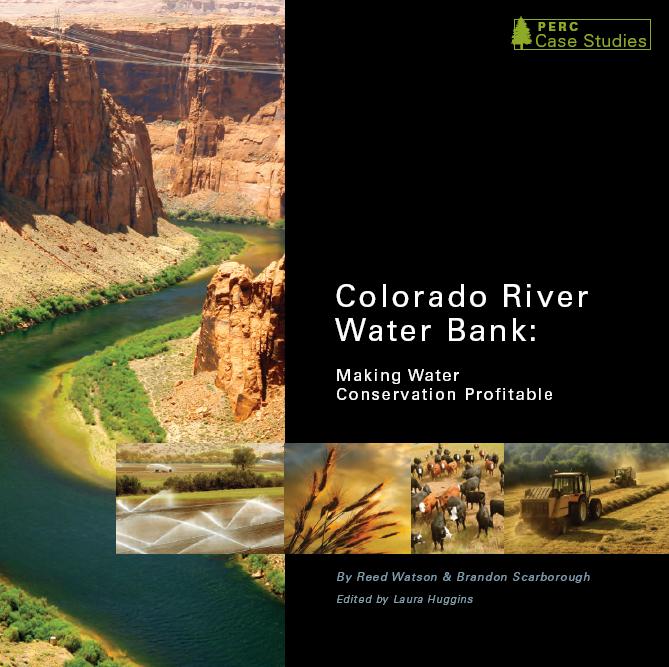by Reed Watson
The second case study in PERC’s Water as a CropTM series features the Colorado River Water Bank, a market-based policy proposal that could improve Colorado’s long-term water security. As the case study explains, the Colorado River Compact obligates the state of Colorado and other Upper Basin states to leave a certain amount of water in the Colorado River for Lower Basin states. As Colorado’s growing population demands more and more water, the state risks violating that agreement. The proposed water bank stands to alleviate that risk — and to reduce the cost should a curtailment occur — by allowing water users throughout Colorado to trade consumption rights.
Click here to read the case study. For more on the series, see Cheney Lake Watershed: Farming Water Quality in Kansas.
Reed Watson is a research fellow and the coordinator of applied programs at PERC.




